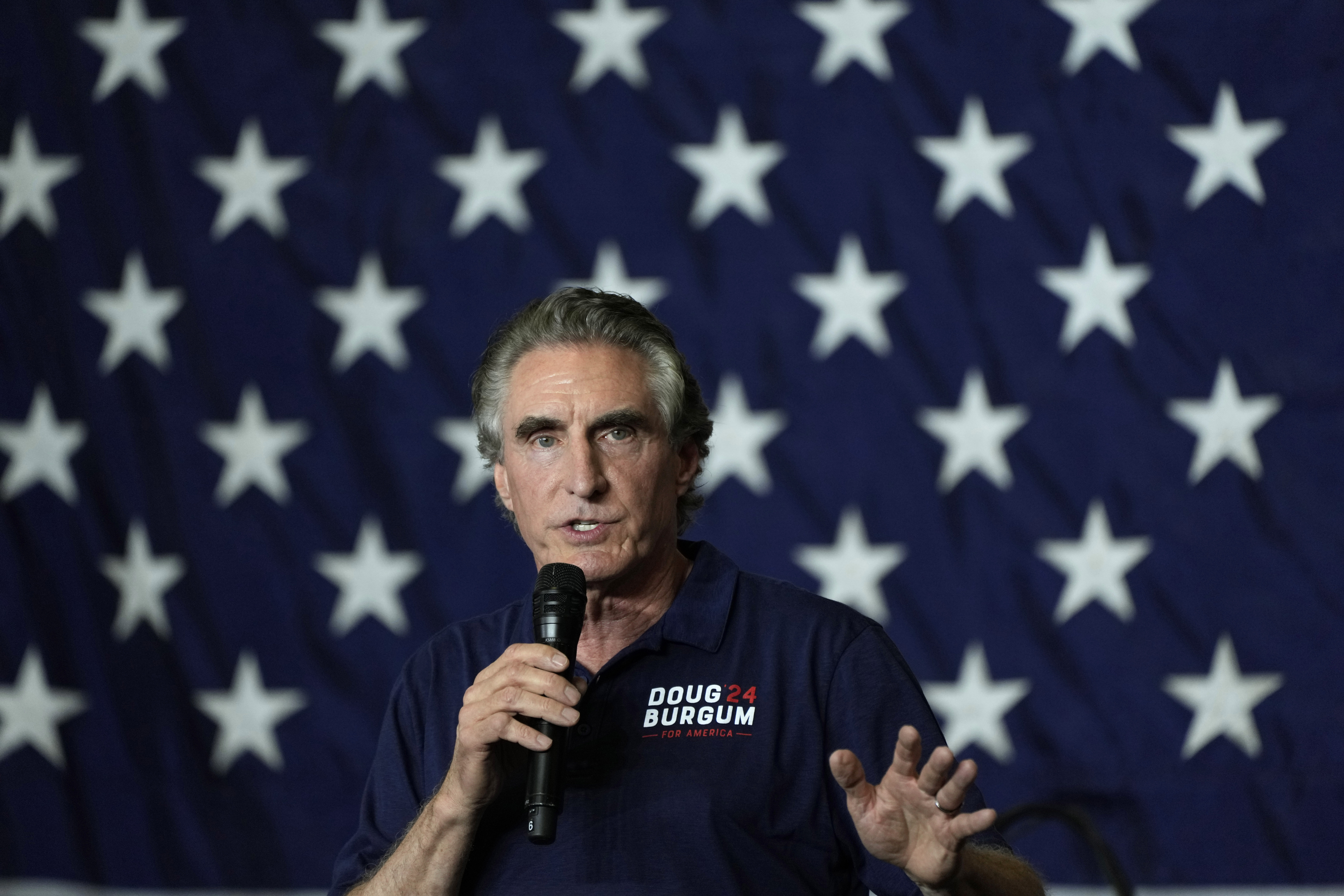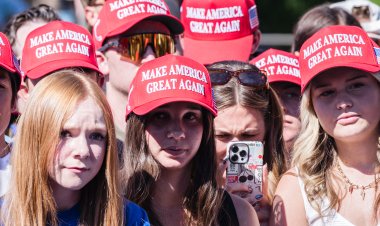Doug Burgum injured leg, may not stand at GOP debate
The Republican presidential candidate went to the emergency room on Tuesday night.


North Dakota Gov. Doug Burgum injured his leg on Tuesday and may not be able to stand at the GOP presidential debate Wednesday night, a spokesperson confirmed to POLITICO.
The governor was injured while playing a game of pickup basketball in Milwaukee and went to the emergency room, spokesperson Lance Trover said. CNN reported the news first.
Burgum, 67, is slated to appear along seven other candidates on Wednesday night in the biggest event of the Republican primary so far — although Donald Trump, the party's frontrunner, will skip. The debate will air on Fox News at 9 p.m. ET.
"We're hopefully going to make the walk-through this afternoon, and then make an assessment and decide then as to whether he's going to make the debate tonight," Trover told ABC News Live on Wednesday morning, referring to when the candidates visit the debate venue before the main event. "Obviously, standing for two hours when your leg has been injured can be quite problematic."
Under the television cameras, the debate presents the best opportunity yet for Burgum to ramp up his profile after he launched his long-shot campaign in early June. He has consistently polled in the low single digits. The former software executive first ran for North Dakota governor in 2016 before being reelected in 2020.
Burgum has spent millions of his personal fortune to boost his bid, most notably pouring money into a tactic that offered donors $20 gift cards in exchange for donating as little as $1 to his campaign. The strategy worked, as he was able to make the donor threshold requirement of 40,000 unique contributors, with 200 in 20 different states or territories.
During his campaign, he has generally eschewed the social and culture issues that have consumed the rhetoric of many popular Republicans, reasoning that the president should not focus on those topics. Instead, he has focused his campaign on the economy and the need to boost domestic energy production.












